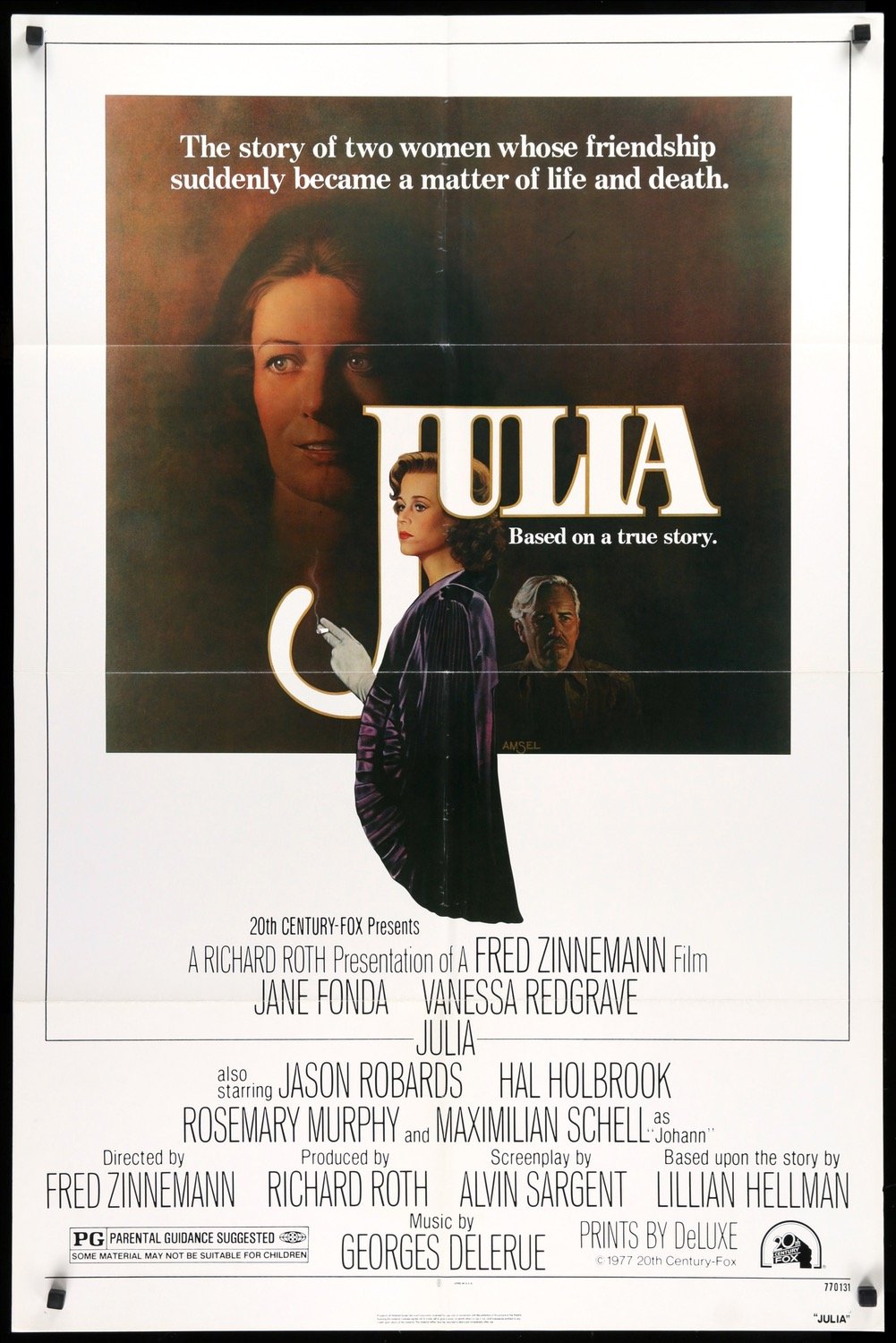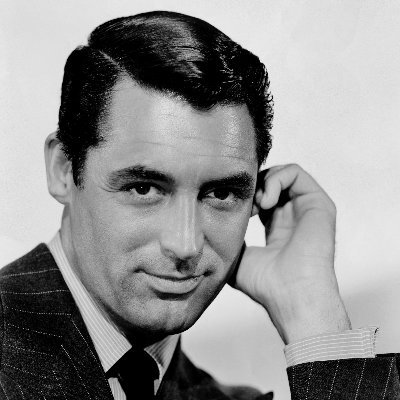
- Starring
- Jane Fonda, Vanessa Redgrave, Jason Robards
- Writer
- Alvin Sargent
- Director
- Fred Zinnemann
- Rating
- PG (United States)
- Running Time
- 117 minutes
Overall Score
Rating Summary
Julia is based on a chapter from Lillian Hellman’s controversial book Pentimento, about the author’s alleged friendship with a woman named, “Julia”, who fought against the Nazis in the years prior to World War II. It stars Jane Fonda, Vanessa Redgrave, Jason Robards, Hal Holbrook, Rosemary Murphy, Maximilian Schell and Meryl Streep (in her film debut).
Julia‘s problems become apparent the moment it reveals itself to be flashback-driven. The childhood scenes are actually pretty good for showing Lilian (Fonda) and Julia’s (Redgrave) childhood friendship, their idealistic ambitions, and their restlessness from being cooped up in Julia’s isolated mansion. But aside from a couple of affecting scenes between Fonda and Redgrave much later in the film, it doesn’t really get viewers a sense of their bond, only that Lilian sees her as this ideal for what womanhood should be. In fact, this film only shows us snippets of its more interesting parts – Julia’s mission to stop the Nazis. However, this was only through Lilian’s POV, a woman whose mannerisms and tics can’t really disguise the fact that the film doesn’t even focus concretely on her; her personal journey feels strangely impersonal. She ultimately feels like a cipher to lead us on a mouse hunt of ‘Where’s Julia?’ and a convoluted mission to smuggle money into Nazi Germany.
It’s a shame because Redgrave is very good as Julia, carrying an aura of mystery but also a warmth, fierceness and iron will to her character that makes viewers want to spend more time of her. Fonda is less consistent, at least in the first third and a little too reliant on specific mannerisms and choices to compensate for the weak writing, but she becomes more assured in her characterization as the movie progresses. Robards is a welcome presence as Dashiell Hammett, especially in modulating his scenes with Fonda, but his scenes are completely arbitrary. Hammett could have been cut out entirely without much of a change in the overall film. The same can be said about Maximilian Schell as Johann, he has some two touching scenes with Fonda and that’s about it – this only makes one wonder why his character is even there at all to begin with.
The way Julia is structured and the events that take place over the course of the film make it sound like it should be exciting, but it’s disappointingly rather muted. At times, it felt like a ‘Very-important-person’ biopic directed by Stanley Kramer, in its attempts to idolize the figures it was focusing on, as well as its especially toothless efforts to add heavy-handed social commentary to the mix. Other times, it felt like an early version of Mank. Like that film, it takes a (presumably) quasi-fictionalized approach to history, perplexing attempts at atmospheric style, a slow-burning approach, and showboating performances trying to make the flaws in the writing work. One can tell there is a disconnect between director Fred Zinnemann and the source material. His take is simply too tasteful. He was quoted as saying the following: “Lillian Hellman in her own mind owned half the Spanish Civil War, while Hemingway owned the other half. She would portray herself in situations that were not true. An extremely talented, brilliant writer, but she was a phony character, I’m sorry to say. My relations with her were very guarded and ended in pure hatred.” This explains a lot about the confused atmosphere of the film. At times, it succeeds at capturing a chilly yet naturalistic atmosphere. the lighting during the train scenes was good while the childhood scenes were very pretty and the beach scenes felt crisp as they should, but it never goes far enough stylistically. It just sits there in a sort-of limbo.
In the end, Julia should’ve gone for broke and been truly audacious with its bizarre, impenetrable source material, but instead it tries to be a safe prestige drama. The best way to describe the resulting film is a watchable failure. One gets the sense that it would’ve truly worked if Lillian Hellman hadn’t been involved in any capacity. Her narration only serves to throw the tone off further.
still courtesy of 20th Century Studios
Follow me on Twitter, Instagram, and Letterboxd.
If you liked this, please read our other reviews here and don’t forget to follow us on Twitter or Instagram or like us on Facebook.
Discover more from
Subscribe to get the latest posts sent to your email.

